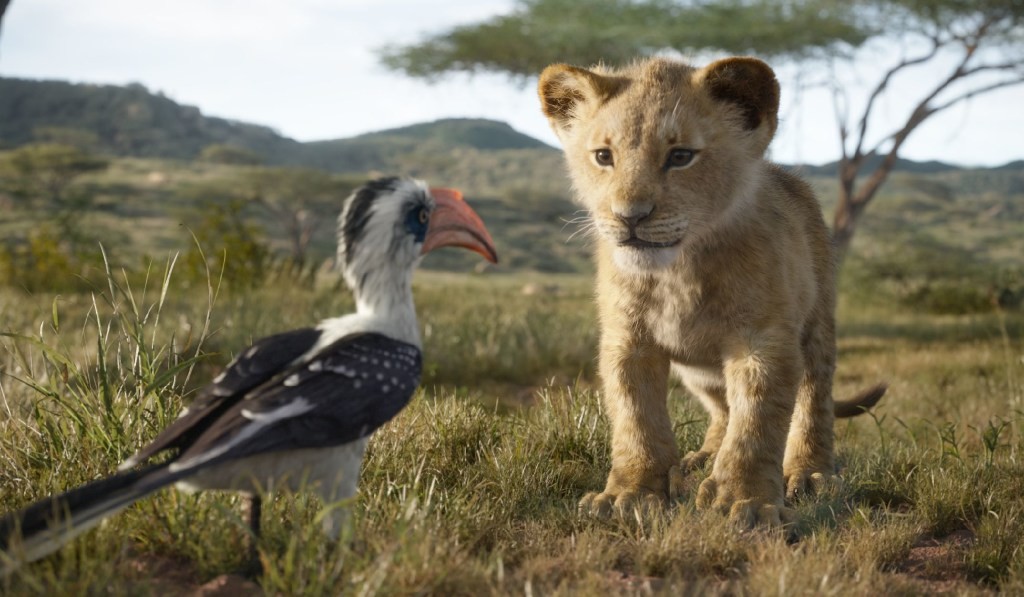Advertisement
Advertisement

Why Lion King’s opening in China tops Aladdin and Beauty and the Beast
Live action remake of Disney’s 1994 animated classic rides on rare Hollywood nostalgia in China
This article originally appeared on ABACUS
When it comes to cashing in on millennial nostalgia, what works in the West doesn’t always translate in China. But Disney’s latest live action remake seems to have struck the right chord with Chinese moviegoers.
The Lion King, which opened in China a full week ahead of its North American release, pulled in US$54.7 million from Friday to Sunday. That’s nearly three times better than the opening of Aladdin seven weeks earlier and US$10 million more than 2017’s Beauty and the Beast.

Simba and friends hold a special place in the hearts of Chinese viewers.
The original Aladdin in 1992 and Beauty and the Beast in 1991 might be equally memorable to Western viewers. But in China, Lion King was the first imported animated blockbuster to be shown on the big screen. It didn’t matter that the film only arrived in 1995, a year after it premiered in other markets. The Disney classic made a deep impression on Chinese families at a time when most animations weren’t considered serious enough to warrant a theatrical release.
“This was the first ever animated film I watched,” said one Weibo user. “I was two when the movie was released. It kept being replayed on the VCD player, a new invention at that time, in my living room. I still remember the first time I heard Circle of Life.”
“Dragged my mom to see Lion King yesterday,” wrote another Weibo user. “We had a Lion King VCD at home when I was small. We played it every time I threw a tantrum. Mom was complaining how I still want to watch [the remake] after watching the film hundreds of times as a kid.”
(For those living in the US who might not be familiar, VCDs -- or compact video discs -- were extremely popular in China during the late 1990s and early 2000s as a cheaper alternative to DVDs. At the time, a DVD player cost more than a tenth of China’s per capita income while a VCD player cost about 2%, according to film historian David Bordwell.)
As part of its promotional campaign in China, Disney is releasing an international version of the theme song Can You Feel The Love Tonight. It features Beyoncé and Canto-pop super star Jacky Cheung in an English-language duet.
The film premiered at Shanghai Disneyland last Wednesday, featuring a live piano performance of the same song by the husband-and-wife duo Lang Lang and Gina Alice Redlinger. It was streamed on two dozen platforms, including Tencent Video and Youku.

China has recently seen a number of theatrical releases designed to cash in on nostalgia. Studio Ghibli’s Spirited Away, an 18-year-old Japanese animated classic, premiered in Chinese cinemas last month for the first time ever. It made more in ticket sales than Toy Story 4, which opened on the same day.
Pre-order Toy Story 4 on Amazon
Unlike Japanese anime, which has been widely popular in China for decades, the Toy Story franchise doesn’t have the same level of appeal. The original Pixar series didn’t start showing in Chinese cinemas until the third installment in 2010.
Other classic franchises that are successful in the West don’t necessarily do well in China, either, where viewers have a vastly different cultural memory compared with other parts of the world. Star Wars: The Force Awakens, which broke the US box office record in 2015, failed to connect with Chinese viewers, who largely missed out on the original trilogy.
For more insights into China tech, sign up for our tech newsletters, subscribe to our Inside China Tech podcast, and download the comprehensive 2019 China Internet Report. Also roam China Tech City, an award-winning interactive digital map at our sister site Abacus.

Post
